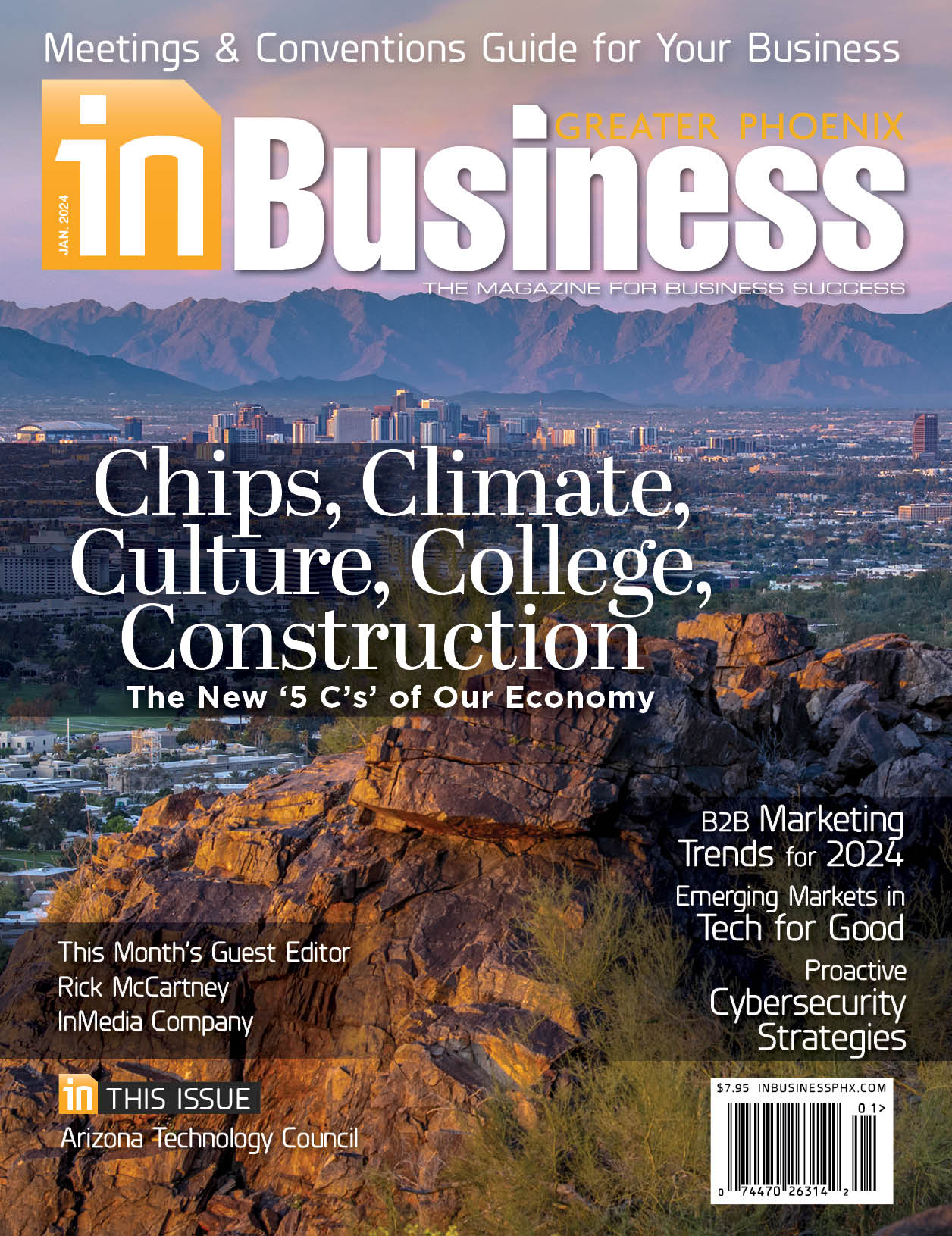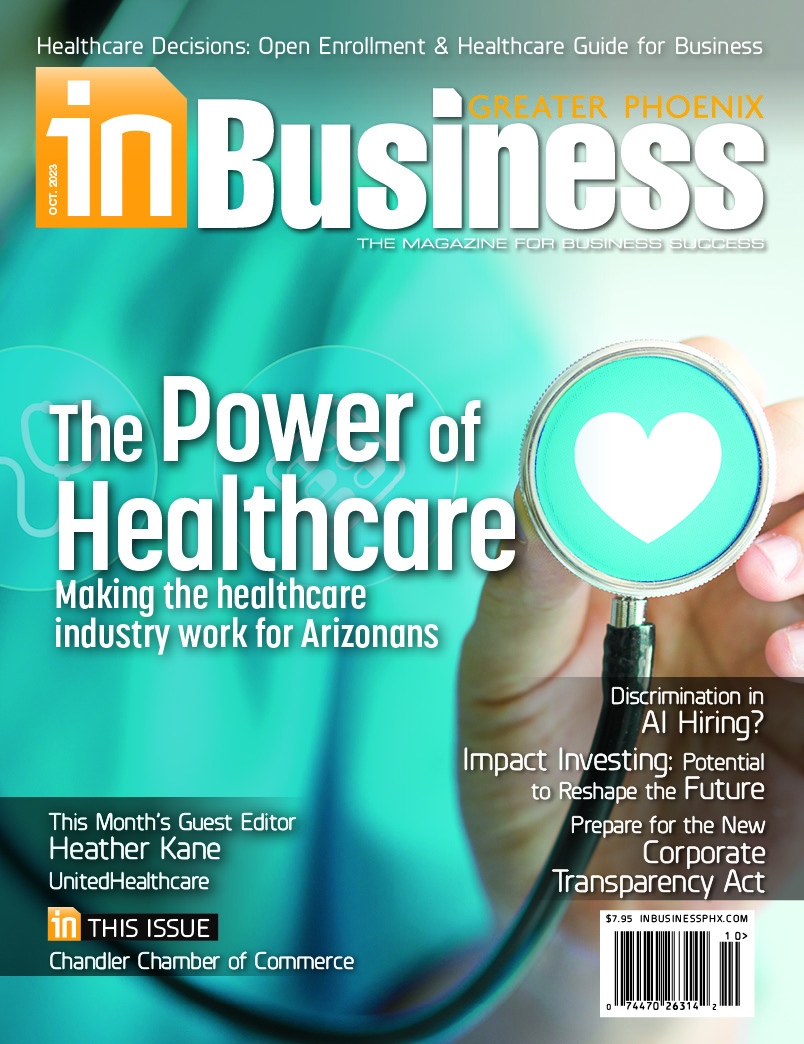The JPMorgan Chase Institute released new research examining the initial impact of the COVID-19 pandemic on U.S. small business finances. This research is part of a series of insights that uses neareal-time data to investigate the economic impact of COVID-19. Findings include:
- Small business cash balances dropped 12.7% and revenues dropped as much as 50% at the onset of COVID-19, but balances rebounded by the end of April.
- Black- and Asian-owned businesses experienced more severe drops in cash balances and revenues relative to White-owned businesses.
- Across 16 U.S. metro areas highlighted in the research, small businesses in Atlanta and Las Vegas experienced the steepest declines in cash balances.
Phoenix Highlights
- Findings for Phoenix showed that in April, as cash balances started to rebound, for small businesses in Phoenix, cash balances increased 2 percent compared to April 2019.
- During the initial phase of the pandemic from March 1 to April 30, Phoenix small businesses saw their cash balances decrease by 7 percent year-over-year at the lowest point.
Researchers leveraged daily transactions from a sample of nearly 1.3 million de-identified small businesses that hold Chase Business Banking deposit accounts, including both employer and nonemployer firms, to analyze cash balances, revenues and expenses through April 2020.
The JPMorgan Chase Institute will continue to release additional insights over the coming months as part of this COVID-19 series, examining topics such as household income and liquid assets, to help inform efforts aimed at supporting economic recovery.
Small business cash balances and revenues dropped sharply at the onset of the COVID-19 pandemic with significant variation across metro areas, industries and demographic groups. Black- and Asian-owned businesses, as well as businesses in the restaurant and personal services industries, were particularly hard hit.
- Small business cash balances dropped 12.7% and revenues dropped as much as 50% at the onset of COVID-19, but balances rebounded by the end of April. Balances declined across metro areas, but there was variation in the extent of the impact.
- In early-April, small business cash balances were down 12.7% and at their lowest point. However, they rebounded starting in mid-April.
- Small business revenues declined substantially, with a 50% year-over-year decline at the lowest point in late March. By the end of April, revenues and expense remained materially lower than they were a year prior.
- Cash balances fell the most for small businesses in Atlanta (-21%), Las Vegas (-20%), Orlando (-18%), Miami (-15%), and New York (-14%), which could be due in part to decreased tourism in cities traditionally fueled by the hospitality industry. By the end of April, balances had rebounded the most in Seattle (+4%) and Indianapolis (+3%).
- Black- and Asian-owned businesses had larger declines in balances and revenues than White-owned businesses. Black-owned businesses’ cash balances were down 26% at the end of March, whereas White-owned businesses’ cash balances were down about 10%.**
- Asian-owned businesses experienced the sharpest decline in revenues – a more than 60% decline – potentially due to discrimination of Asian American businesses and concentration in certain harder-hit industries.
- Black- and Hispanic-owned businesses were particularly vulnerable because of the industries in which they are concentrated (e.g. personal services) and because they were already in a weaker financial position prior to the pandemic with less cash liquidity to weather disruptions in revenues.
- Restaurants and personal services businesses (e.g. salons, dry cleaners) had the largest decline in cash balances and revenues. Restaurant cash balances declined 48% and personal services cash balances fell nearly 40%.
- In the service industry, revenues declined the most for personal services businesses (85% decline by mid-April), whereas healthcare services and high-tech services firms had declines in revenues of around 50% and 40%, respectively.
- Balances among high-tech manufacturers, health care service providers, real estate firms, and metal and machinery manufacturers were largely stable and even increased towards the end of April.
“A global pandemic and stay-at-home orders create a hard environment for any company to operate in – but it can be a death sentence for small businesses, which already operate on thin cash buffers,” said Diana Farrell, President and CEO, JPMorgan Chase Institute. “Regardless of geography, industry and demographics, we see that all small businesses experienced a sharp cut in their cash balance and revenue during the initial stage of the pandemic. Black-owned and Asian-owned small businesses were disproportionally hit hard by the early economic crisis and may face a longer road to recovery.”
These findings come with important caveats:
- At the time of writing, the JPMorgan Chase Institute only observes the initial impact of the COVID-19 pandemic on U.S. small businesses. Given the analytical timeframe through the end of April 2020, it does not include funds received through the second round of the U.S. Small Business Administration’s Paycheck Protection Program.
The JPMorgan Chase Institute is a think tank dedicated to delivering data-rich analyses and expert insights for the public good. Drawing on JPMorgan Chase & Co.’s unique proprietary data, expertise, and market access, the Institute develops analyses and insights on the inner workings of the global economy, frames critical problems, and convenes stakeholders and leading thinkers.













Speak Your Mind
You must be logged in to post a comment.